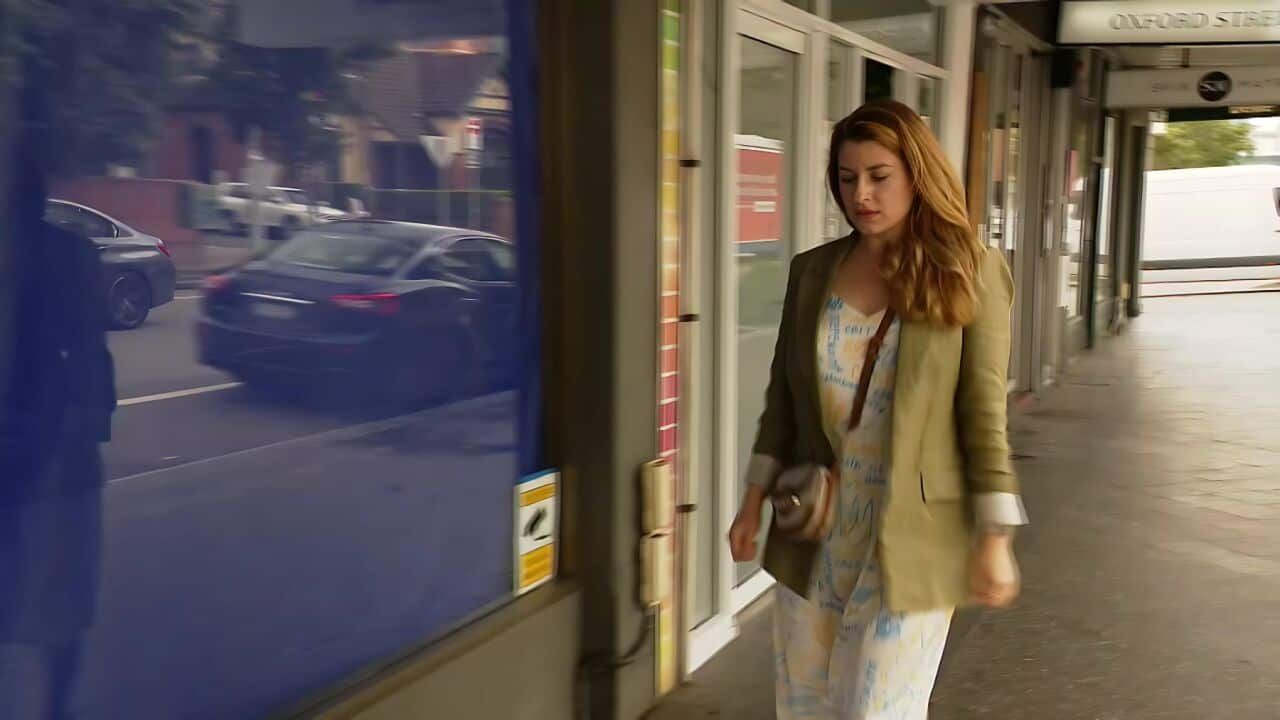Produced in collaboration with SBS Russian
TRANSCRIPT
In Kyiv, Valentina Odarushenko ran a psychology school before the war.
Now, she's opening a beauty salon in Sydney after being forced to flee her country and take refuge in Australia.
It's a drastic change that she hadn't planned for but Ms Odarushenko says she's making the most of her situation, no matter how precarious it may be.
"I do my best here but I don't know what is happening. Maybe the government will tell us in March 'Ok guys, we are so tired of you. Go back to Ukraine please.' We don't know, it's difficult."
Her business partner at the salon is a Russian raised in Australia.
She says, despite the conflict between the two peoples, she will always treat people according to their actions, not their nationality.
"It doesn't matter her nationality, it's important what she did. Because you can be even Ukrainian and support Russia. It depends on the person, that's why I see what the person is doing."
Valentina, like many others, say they're living in limbo as the Russian invasion drags into a third year.
Since February 2022, 13,500 Ukrainian citizens have arrived in Australia, with almost 4000 people on temporary humanitarian visas.
It's a low number compared with the more than 6.3 million Ukrainian refugees sheltering around the world.
When the war started - the federal government said it had granted more than 8600, mostly temporary, visas which last three years.
However, many have been forced to leave to other parts of the world due to heavy restrictions on humanitarian visa-holders.
Ivan Levytsky says he struggled to find work as he was forced to leave his company due to travel restrictions.
"Humanitarian visa conditions were such that I was not really able to leave Australia so with the humanitarian visa conditions I had to quit my company and start looking for a job inside Australia which was not always on the market, so i was struggling with work."
His wife, Yulia Levytsky says they have since moved to Romania now as the conditions suit them much better.
"All the circumstances, they pushed us and it wasn't so easy for us. But now it gives us conditions that are more affordable to stay here, and we can leave this country to see our parents."
And for Ukrainians living in Australia, the end of their three-year visas is on the horizon and with no end to the war in sight it has been difficult to think of the future.
Iryna Zaiets is a refugee dealing with the limitations of being on a temporary visa without a pathway to permanent residency.
She says she's faced challenges in gaining employment and securing a loan for her family.
"It's difficult to find a good job in the pharmaceutical industry without permanent residency or citizenship. We can't plan our life more than one year. We can't get a loan. We can't get a loan to buy a new car for example. It's difficult to live with this understanding."
Ms Zaiets says she and other Ukrainians have found it challenging to transition to a more stable visa option too.
"Our English level, this is the reason why we can't apply to skilled visas. Most of Ukrainians have similar problem. They can't apply for skill visas because of English language skills, because of age, for example, or can't provide documentation, especially from occupied territory."
Australian Ukrainian community leaders want the government to establish clear pathways to permanent residency.
Co-chair of the Australian Federation of Ukrainian Organisations, Stefan Romaniw [[Roh-MUH-new]], says peace of mind is essential from those fleeing the conflict.
"They are working, some are ready to buy real estate, some are ready to start their businesses, but on the other hand many are falling into depression because they don't know what the future holds. So there visas expire next year. We're pretty confident that nobody will be sent back to a war zone so we presume there will be an extension of visas. But what we're arguing is sooner or later a decision needs to be made. We're suggesting, make the decision now. Give people permanency, give them stability and give them dignity."
The government has responded, with a spokesperson for the Department of Home Affairs saying it will prioritise visa applications from Ukrainian nationals with special attention paid to those with what they call a "strong, personal connection to Australia".
Asked "If Australia would consider pathways to permanent residency" similar to those announced for nations such as New Zealand - there was no response.
Despite this ambiguity and the heartache she feels for friends and family stuck in Ukraine, Ms Zaiets says she hopes she and her family will be able to call Australia home soon.
"I would like to stay because we started a new life in Australia and I don't want to start my life again and again. My daughter is very Australian, she even has an Australian accent. We'd be happy to stay here but we meet a lot of challenges."













